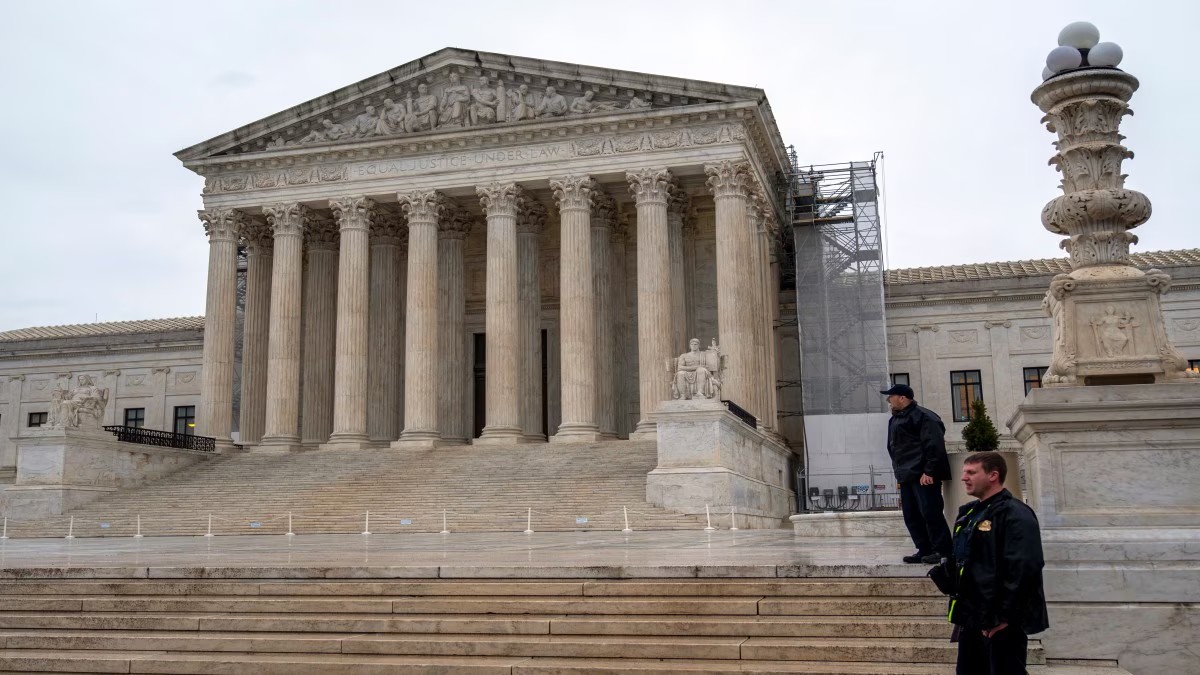The US Supreme Court will conclude its nine-month term and go on summer break on Friday. However, on the final day of the term, the court will give a flurry of rulings, some of which are closely watched cases. One of these cases involved US President Donald Trump’s attempt to end automatic birthright citizenship.
The cards appeared to be in Trump’s favour since the court has a 6-3 conservative majority. On the final day, it will have six cases left to decide. The oral arguments of all these cases were heard in the current term, which began in October. Other cases deal with voting rights, religious rights and healthcare.
One of the cases that will attract the most attention is the birthright citizenship dispute, which focuses not on the lawfulness of the proposal itself but on whether federal judges had the power to block it nationwide while litigation continues. However, what the apex court says about nationwide injunction would ultimately have a wide-ranging impact after the federal judge ruled against Trump on his broad use of executive powers.
About the case
Apart from this, the Supreme Court also has an option to side-step and avoid delivering a decision on the matter, instead of taking up the merits of the plan. It is pertinent to note that Birthright citizenship in the United States is conferred under the United States Constitution’s 14th Amendment.
“All persons born or naturalised in the United States, and subject to the jurisdiction thereof, are citizens of the United States, the provision says. The longstanding interpretation of the provision, as understood by generations of Americans, is that anyone born on US soil is an American citizen with a few minor exceptions, including people who are the children of diplomats.
Apart from birthright citizenship, the other five cases the court will deliver its ruling on are as follows:
Whether conservative religious parents can opt their children out of LGBTQ-themed books in elementary schools.
Whether certain congressional districts in Louisiana are lawful.
A law in the state of Texas, which imposes age restrictions for using adult websites.
A challenge to the Affordable Care Act’s preventive care task force.
A Federal Communications Commission program that subsidises phone and internet services in underserved areas.
After Friday, the justice will go and summer break and will return for a new term in October. However, it is pertinent to note that the court will still likely continue acting on cases that reach it on an emergency basis. Interestingly, such cases have been reaching the court with increasing frequency since Trump took office.
)